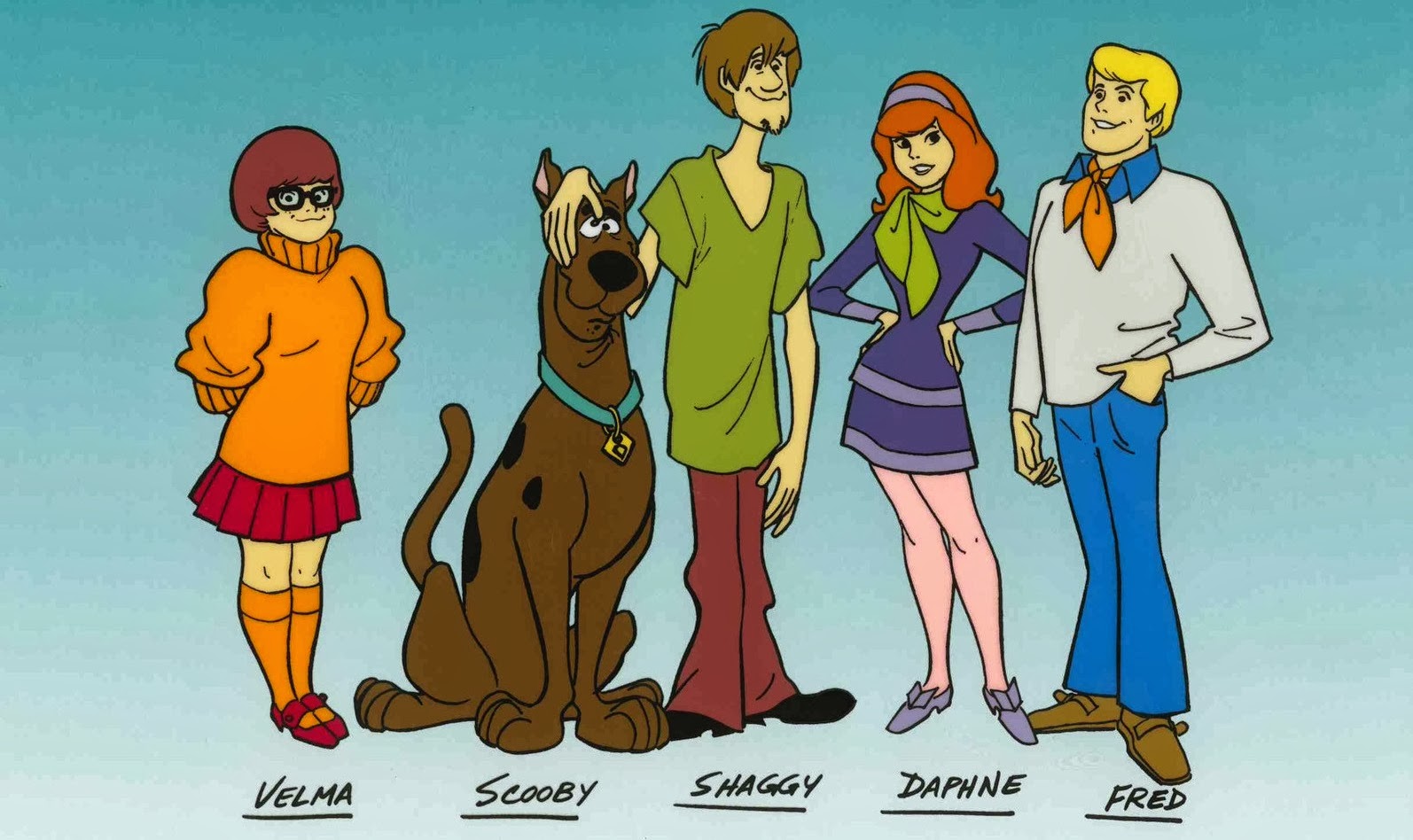Scooby-Doo is not just a cartoon; it is a cultural phenomenon that has captivated audiences of all ages for decades. The beloved Great Dane and his gang of mystery-solving friends have become iconic figures in the animation landscape. This article will delve into the cast of the Scooby-Doo cartoon, exploring their unique characteristics, voices behind the characters, and the evolution of the series over the years. Join us as we unravel the mysteries behind the cast of Scooby-Doo!
The Scooby-Doo cartoon franchise began in 1969 with "Scooby-Doo, Where Are You!" and has since spawned numerous series, movies, and spin-offs. What makes this show enduringly popular is not just the humor and mystery but also the well-defined characters who resonate with viewers. In this article, we will dissect each main character, the voice actors who brought them to life, and how they contributed to the show's success.
Whether you are a long-time fan or a newcomer to the franchise, understanding the cast of Scooby-Doo will enhance your appreciation for this timeless show. So, let’s dive into the world of Scooby and his friends!
Table of Contents
- Biography of Scooby-Doo
- Main Characters
- Voice Actors Behind the Characters
- Character Evolution Over the Years
- Cultural Impact of Scooby-Doo
- Fun Facts About Scooby-Doo
- Future of Scooby-Doo
- Conclusion
Biography of Scooby-Doo
Scooby-Doo is a fictional character and the titular protagonist of the animated television series created by Joe Ruby and Ken Spears. He is a talking Great Dane known for his love of food, especially Scooby Snacks, and his cowardly nature. Scooby-Doo was first introduced to audiences on September 13, 1969, and has since become a staple in children's entertainment.
| Full Name | Scooby-Doo |
|---|---|
| Species | Dog (Great Dane) |
| Occupation | Mystery Solver |
| Owner | Shaggy Rogers |
| First Appearance | Scooby-Doo, Where Are You! |
Main Characters of Scooby-Doo
The main characters of Scooby-Doo each have distinct personalities that contribute to the dynamics of the group. Here’s a closer look at each character:
1. Scooby-Doo
Scooby-Doo is the lovable and goofy Great Dane whose antics often lead to comedic relief. Despite his cowardly tendencies, he plays a crucial role in solving mysteries with his friends.
2. Shaggy Rogers
Shaggy is Scooby’s best friend and owner. He is known for his insatiable appetite and laid-back attitude. Shaggy often shares Scooby's fears but is always ready to join in on the adventure.
3. Fred Jones
Fred is the leader of the group and is characterized by his bravery and resourcefulness. He often comes up with plans to capture the villains they encounter.
4. Daphne Blake
Daphne is the fashion-forward member of the gang, known for her resourcefulness and bravery. She often finds herself in perilous situations but manages to escape with her cleverness.
5. Velma Dinkley
Velma is the brains of the group, known for her intelligence and analytical skills. She often uncovers clues that help solve the mysteries, making her an invaluable member of the team.
Voice Actors Behind the Characters
The success of Scooby-Doo can also be attributed to the talented voice actors who brought these characters to life. Here are some of the notable voice actors:
- Casey Kasem: The original voice of Shaggy Rogers from 1969 until 1997.
- Don Messick: The original voice of Scooby-Doo until 1996.
- Frank Welker: Currently voices Scooby-Doo and has contributed to the franchise since 1970.
- Heather North: Voiced Daphne from 1970 to 2003.
- Velma Dinkley: Originally voiced by Nicole Jaffe, followed by actresses like Mindy Kaling and Kate Micucci.
Character Evolution Over the Years
Since its debut, the characters in Scooby-Doo have evolved significantly. The series has seen multiple reboots and adaptations, with each iteration offering a fresh take on the classic characters. Here are some notable changes:
- Design Changes: The character designs have become more modern to appeal to contemporary audiences.
- Personality Development: Characters have been given deeper backstories in some iterations, providing more context to their actions.
- New Characters: New characters have been introduced in various spin-offs, adding diversity to the group.
Cultural Impact of Scooby-Doo
Scooby-Doo has left an indelible mark on popular culture. The show has influenced various media, including films, merchandise, and even theme park attractions. Here are some ways Scooby-Doo has impacted culture:
- Merchandising: Scooby-Doo merchandise, including toys and clothing, has generated significant revenue.
- Films and Spin-offs: Numerous films and spin-offs have expanded the Scooby-Doo universe, introducing new generations to the characters.
- References in Media: Scooby-Doo has been referenced in numerous television shows, movies, and even academic discussions.
Fun Facts About Scooby-Doo
Here are some interesting facts that you might not know about Scooby-Doo:
- Scooby-Doo’s full name is Scoobert Doo.
- The original series was created as a response to the popularity of the mystery genre in the 1960s.
- The dog’s voice was inspired by the voice of a dog named "Snoopy."
Future of Scooby-Doo
The future of Scooby-Doo looks promising, with various projects in the pipeline. Fans can look forward to new series and movies that will continue to explore the adventures of Scooby and the gang.
Conclusion
In summary, the cast of Scooby-Doo, including Scooby, Shaggy, Fred, Daphne, and Velma, has become an integral part of animated history. Their unique personalities and the talented voice actors behind them have contributed to the lasting legacy of this franchise. If you have enjoyed this exploration of Scooby-Doo, feel free to share your thoughts in the comments, and don’t forget to explore more articles on our site!
Thank you for joining us on this journey through the world of Scooby-Doo. We hope to see you back here for more exciting content!
Are Ethan And Mika Still Together? A Deep Dive Into Their Relationship
Exploring Iconic Cartoon Network Shows Of The Early 2000s
Exploring The Most Famous Selena Songs: A Tribute To Her Legacy


